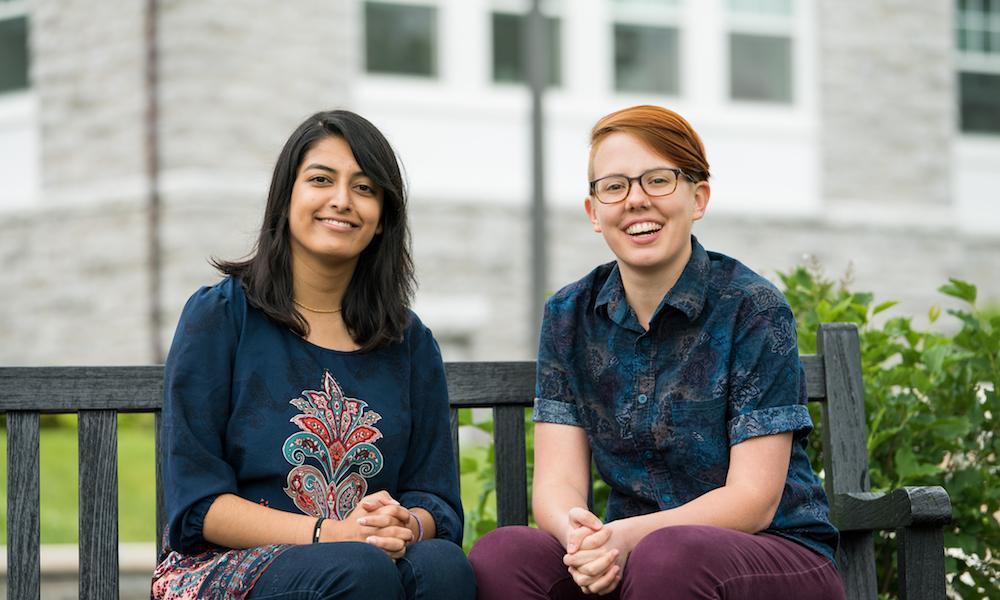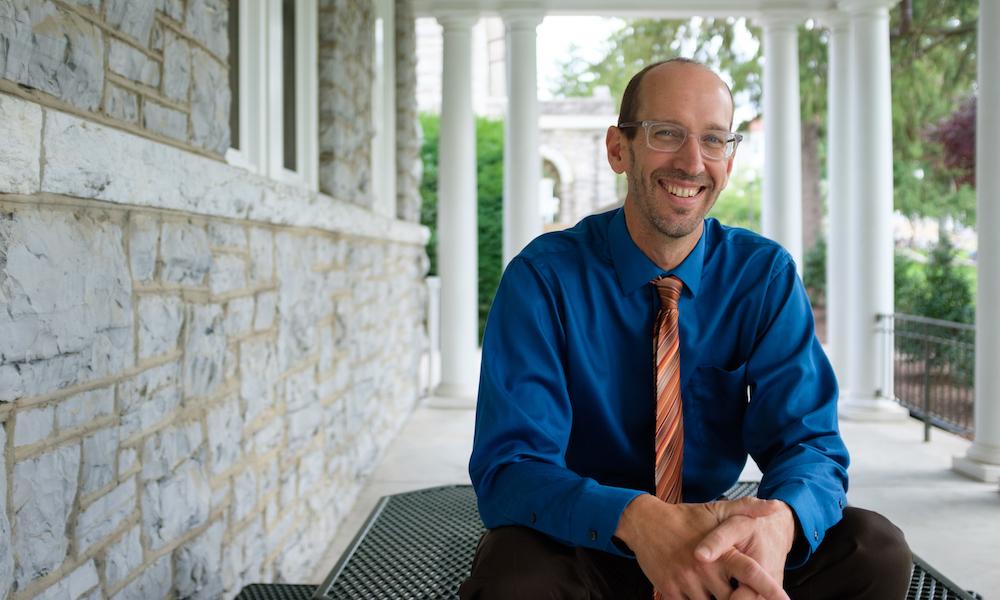Creating dialogue
How two JMU students put civic engagement into practice
JMU in the Community
SUMMARY: After learning about an event, "Understanding the Jihad Threat," being held in Greene County, Khan and Barker felt they had to do something to counter the negativity in their hometown.
from the Winter 2018 issue of Madison
Recent graduates Najeeha Khan (’17), an international affairs and religion double major, and Kayla Barker (’17), an Honors student and sociology major, grew up in Greene County, in central Virginia, and went to the same high school. Their friendship grew at JMU, despite different interests and majors. Then, an event back home spurred them to form a partnership for a very special reason—civic engagement.
In November 2016, they learned about an event, “Understanding the Jihad Threat,” being held in Greene County. It was garnering plenty of reaction, both positive and negative, in their hometown and beyond. They worried that misinformation, or a one-sided presentation, could be problematic.
“There weren’t a lot of people my age practicing my faith in my hometown,” says Khan, a Muslim. Both she and Barker were aware that ignorance was fertile ground for fear.
As president of the Muslim Student Association at JMU, Khan had been taking the initiative to organize campus events to educate and build awareness of the need for open dialogue. “I have learned from religion classes at JMU how nuanced and complex religious interpretation is and what that learning looks like,” she says.
Both Khan and Barker felt that they had to do something to counter the negativity that had arisen back home. What if they brought the model of constructive dialogue they had learned at JMU to their hometown?
They began plans to conduct a seminar, “Engaging Conversations with the Muslim Community,” an event they hoped would cut through angry rhetoric by allowing people to see and hear from each other.
As they began organizing, they talked to various JMU professors, Harrisonburg community members and Eastern Mennonite University faculty who worked with dialogue and mediation. “We knew we couldn’t do it alone,” says Barker. “We had never done such a thing, but we knew there were people at JMU who had.”
Barker applied for and received a $500 Sociology and Anthropology Department Foundation Award from the sociology department to fund their project. Working together, they figured costs, rented a space and sent emails to various people and organizations in Greene County to encourage attendance. The event received good response, with close to 50 community members attending.
Barker and Khan made a strategic decision to start the seminar with a circle process. “In the circle, everyone gets to see and hear from each other,” says Barker. “We wanted community members to actually be talking to each other, not just listening to a lecture.” The effect would hopefully demonstrate that there is “a common humanity among all of us, Muslim and non-Muslim,” she says.
The conversation was followed by a panel discussion that included the imam from the Harrisonburg mosque, an Eastern Mennonite University student from Saudi Arabia, Khan and JMU professor Jaclyn Michael, a scholar on Islam.
“People were talking to each other in a space meant for positive conversation specifically about the Muslim community, which was so meaningful,” Barker says. The feedback from the seminar was overwhelmingly positive. “Many said, ‘We need more; this wasn’t enough!’” says Khan.
Both alumnae express gratitude to JMU for helping them make the event possible. “If not for my education at JMU, I wouldn’t have been able to do this,” says Khan. “Being able to tap into resources at JMU is the only reason it happened,” says Barker.
However, plenty of the credit rests squarely on the shoulders of Barker and Khan. JMU political science professor Rob Alexander, who assisted in moderating the panel discussion, says, “This event [was] completely planned and developed by the students. They engaged in tough stakeholder outreach and really worked hard to focus on dialogue rather than on conflict and debate.”

|
The positive response they received from the event has convinced them of the value of constructive dialogue. Both remain committed to continuing efforts to communicate and build dialogue on an ongoing basis. “This kind of work is not just a ‘one event and done,’” says Khan. “This work is important. Students who care about issues do have the opportunity to make something happen. These dialogues need to be recreated everywhere.”
“We hope the conversation will continue,” says Barker, “and that these types of discussion will be self-sustaining.”

